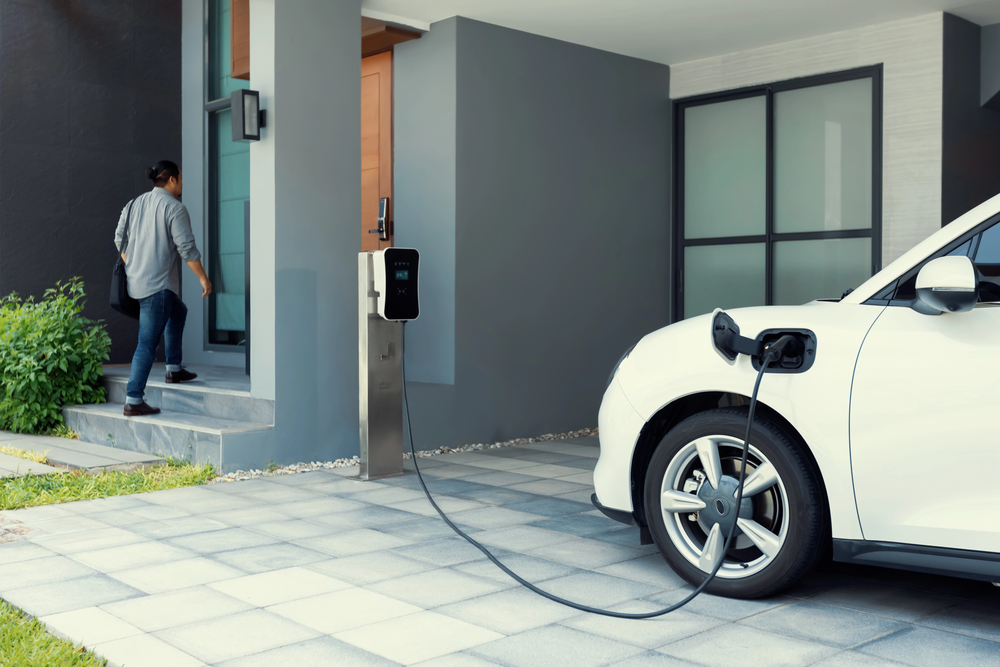Top Things to Consider When Buying an Electric Vehicle (EV)
02.12.25
The electric vehicle (EV) market has exploded in popularity over the past decade, offering consumers a more sustainable and cost-effective alternative to traditional gasoline-powered cars. However, before making the switch to an EV, there are several critical factors to consider to ensure you choose the right vehicle for your lifestyle and needs.
Driving Range and Battery Longevity
One of the most important aspects of purchasing an EV is its driving range on a single charge. Consider your daily commute and how often you take long trips. While some EVs offer ranges exceeding 300 miles, others may only provide 150-200 miles. Additionally, battery degradation over time should be taken into account. Most manufacturers provide warranties, typically covering eight years or 100,000 miles, to give buyers peace of mind regarding battery longevity.
Home Charging Solutions
Charging convenience is another major factor when switching to an EV. At-home charging is the most efficient and convenient way to ensure your vehicle is always ready to go. A standard household outlet, known as Level 1 charging, provides slow charging and is best suited for overnight use. However, installing a Level 2 home charger (240V) can significantly reduce charging times, often fully charging an EV in a matter of hours instead of overnight. Many homeowners choose to install a dedicated charging station in their garage or driveway, but installation costs should be factored into the overall budget. Some states and energy providers offer rebates or incentives to help offset these costs. Additionally, homeowners should assess their electrical panel capacity to ensure it can handle the extra load of a Level 2 charger. For those who cannot install a home charging unit due to living in apartments or shared spaces, access to nearby public charging stations becomes even more critical.
Public Charging and Fast Charging Options
Public charging infrastructure is rapidly expanding, but availability still varies by location. Apps like PlugShare or ChargePoint can help locate nearby stations, and it’s wise to check for fast-charging capabilities when on the go. DC fast charging is particularly useful for long-distance travel, as it can recharge an EV’s battery up to 80% in under an hour. However, frequent use of fast charging can contribute to faster battery degradation over time, so balancing home charging with public fast charging is recommended.
Cost of Ownership and Savings
The total cost of ownership is another critical consideration. While EVs often have a higher upfront cost, they offer long-term savings due to lower fueling and maintenance costs. Many governments offer tax credits or rebates that can help offset the initial price. Additionally, electricity costs for home charging are generally lower than gasoline expenses, leading to substantial savings over time. Maintenance costs are also reduced since EVs have fewer moving parts than internal combustion engine vehicles—no oil changes, fewer brake replacements, and fewer mechanical failures.
Performance and Driving Experience
Performance and driving experience should not be overlooked. EVs deliver instant torque and smooth acceleration, making them enjoyable to drive. Regenerative braking, which helps recharge the battery while slowing down the vehicle, may take some getting used to, but it enhances efficiency. Cold weather can affect battery performance, reducing range, so it is essential to research how specific EV models handle different climates.
Vehicle Size and Utility
Choosing the right vehicle size and utility features is also crucial. EVs come in various styles, from compact city cars to spacious SUVs and powerful trucks. Buyers should consider cargo space, seating capacity, and towing capabilities based on their needs. Some models are optimized for urban commuting, while others are built for adventure and long-distance travel.
Technology and Software Integration
Technology and software integration are key selling points for many EVs. Advanced infotainment systems, over-the-air software updates, and driver-assist features make these vehicles highly sophisticated. Smartphone integration, navigation systems with built-in charging station locators, and autonomous driving capabilities can enhance the overall driving experience. Buyers should evaluate which tech features align with their lifestyle and driving habits.
Resale Value and Brand Reliability
Finally, considering resale value and brand reliability is essential when making an EV purchase. EV technology is evolving rapidly, and some models may depreciate faster than others. Researching brand reputation, battery warranty terms, and expected depreciation rates will help buyers make an informed choice and ensure a good return on investment if they plan to sell or trade in the vehicle later.
Buying an EV requires careful planning, but with the right considerations, it can be a rewarding and cost-effective investment. Ensuring that your charging needs, driving habits, and budget align with the vehicle’s capabilities will lead to a smooth transition to electric mobility. With an increasing number of models available and charging infrastructure improving, there has never been a better time to embrace the electric future.

